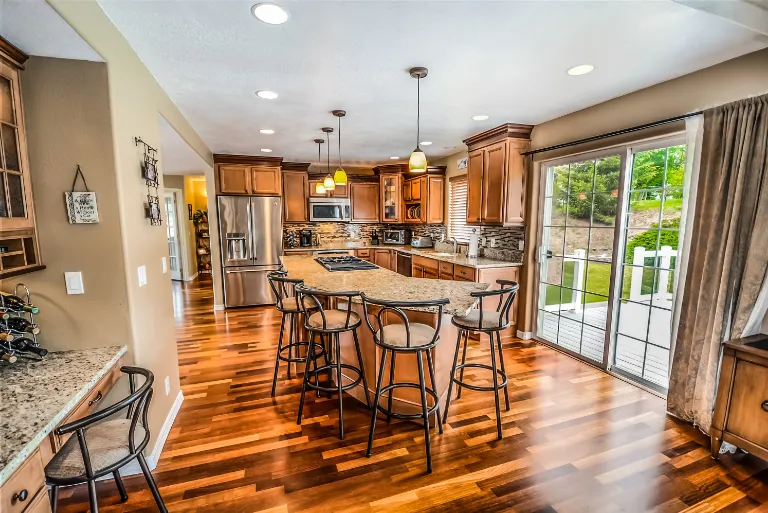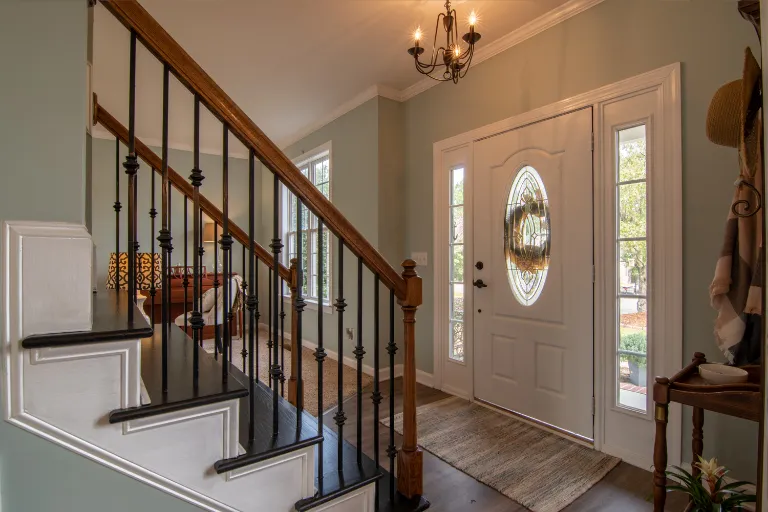Table of Contents
Window tinting has become increasingly popular in recent years, not only for vehicles but also for residential and commercial properties. While it offers numerous benefits such as privacy, heat reduction, and UV protection, one aspect that deserves attention is its impact on real estate and property value. When considering the installation of window tinting, it is essential to understand how it can affect the value and appeal of your property.
1 Enhanced Energy Efficiency

Photo by Pixabay
One of the significant advantages of window tinting is its ability to enhance energy efficiency within a property. By reducing the amount of heat that enters the premises, it helps regulate indoor temperatures, resulting in lower cooling costs during hot summer months. This can be especially beneficial for properties located in areas with extreme climates.
In addition to reducing heat, it also helps to minimize the loss of cool air during the hot months and prevent heat loss during the colder months. This insulation effect can contribute to further energy savings and lower utility bills throughout the year. By highlighting the energy-saving features of a property, such as reduced reliance on air conditioning and heating systems, window tinting can be a valuable selling point. This is particularly appealing to environmentally conscious buyers who are actively looking for ways to reduce their carbon footprint and decrease energy consumption.
Furthermore, when a property is energy-efficient, it not only saves the occupants money but also contributes to a greener environment. This can be attractive to potential buyers who prioritize sustainability and want to live in homes that align with their eco-friendly values.
2 Improved Privacy and Security
Window tinting also provides an increased level of privacy and security for both residential and commercial properties. With tinted windows, outsiders are unable to easily see inside, creating a sense of privacy for the occupants. This can be particularly appealing for properties located in densely populated areas or those facing busy streets.
In addition to privacy, window tinting can act as a security measure. By obstructing the view from the outside, it becomes more challenging for potential intruders to assess the contents of a property. This added layer of film can act as a deterrent, as it makes it more difficult for burglars to determine if there are valuable items worth stealing. The enhanced privacy and security provided by window tinting can make a property more attractive to buyers who prioritize safety and value their personal space.
Moreover, window tinting can also protect the privacy of businesses and commercial establishments by preventing outsiders from seeing sensitive information or valuable assets. This feature can be especially crucial for companies that deal with confidential client data or high-value goods.
3 Protection against UV Rays
Excessive exposure to ultraviolet (UV) rays can be harmful to both humans and furnishings within a property. It helps protect against UV rays by blocking a significant portion of them from entering the premises. This protection helps reduce the fading and deterioration of furniture, flooring, and other valuable items.
When potential buyers or tenants are made aware of the UV protection offered by tinted window, they may perceive the property as better maintained and requiring fewer replacements or repairs over time. This can be a compelling selling point, as it saves homeowners and tenants the hassle and expense of continuously replacing or repairing sun-damaged items.
Additionally, the protection against UV rays can have positive health implications. Prolonged exposure to UV rays can lead to skin damage, including sunburns and an increased risk of skin cancer. It acts as a barrier, reducing the amount of UV radiation that enters the property and helping to safeguard the health of occupants.
4 Enhanced Aesthetic Appeal

Photo by Curtis Adams
Window tinting can greatly enhance the aesthetic appeal of a property. It adds a sleek and modern look to windows, giving the entire building a more sophisticated and elegant appearance. The tinted film can also reduce glare from sunlight, creating a more comfortable and visually pleasing environment.
When marketing a property, showcasing the improved aesthetics resulting from window tinting can make it stand out from competing listings and potentially attract more interested parties. The modern and polished appearance of tinted windows can give a property a competitive edge in the real estate market, especially in areas where tint is less common.
Furthermore, window tinting allows for customization and flexibility in design. There are various tints available, ranging from lighter shades to darker hues, enabling property owners to choose the one that best complements the overall architectural style and color scheme. This customization potential adds to the visual appeal and allows property owners to create a cohesive and harmonious look for their buildings.
5 Potential Drawbacks to Consider
While it offers numerous benefits, it is essential to consider potential drawbacks that may affect property value. It is crucial to strike a balance between the level of tinting and the amount of natural light entering the property. Excessive tinting can make the interior feel dark and gloomy, potentially deterring buyers who prefer well-lit spaces.
To mitigate this drawback, it is advisable to consult with a professional expert who can guide property owners in selecting the appropriate tint level. By striking a balance between privacy, energy efficiency, and natural light, property owners can ensure that the tinting enhances the property’s appeal without compromising the overall ambiance of the space.
Additionally, if the tinted window is of poor quality or improperly installed, it may result in visible bubbles or peeling over time, ultimately diminishing its aesthetic appeal. To avoid this issue, it is essential to choose a reputable professional experienced window film installer. Quality materials and proper installation techniques ensure that they maintain their visual appeal and functionality for an extended period.
6 Conclusion
In conclusion, the impact of window tinting on real estate and property value can be significant. It enhances energy efficiency, improves privacy and security, protects against UV rays, and enhances aesthetic appeal. When considering it for your property, it is crucial to choose a reputable professional to ensure proper installation and high-quality materials. By effectively marketing the benefits of tinting window, property owners can potentially increase the appeal and value of their properties in the competitive real estate market.
7 FAQ
1. How does window tinting enhance energy efficiency?
Window tinting reduces the amount of heat that enters a property, helping regulate indoor temperatures and lowering cooling costs in hot summer months. It also minimizes the loss of cool air during hot months and prevents heat loss in colder months, resulting in energy savings and lower utility bills throughout the year.
2. What privacy and security benefits does window tinting provide?
Window tinting provides increased privacy by making it difficult for outsiders to see inside a property. It also acts as a security measure by obstructing the view from the outside, making it challenging for potential intruders to assess the contents of a property and acting as a deterrent against burglaries.
3. How does window tinting protect against UV rays?
Window tinting blocks a significant portion of UV rays from entering a property, reducing the fading and deterioration of furniture, flooring, and other valuable items. It also helps protect the health of occupants by reducing their exposure to harmful UV radiation.
4. How does window tinting enhance the aesthetic appeal of a property?
Window tinting adds a sleek and modern look to windows, creating a more sophisticated and elegant appearance for the entire building. It also reduces glare from sunlight, creating a more comfortable and visually pleasing environment. It allows for customization with various tints available, enhancing the overall architectural style and color scheme of the property.













